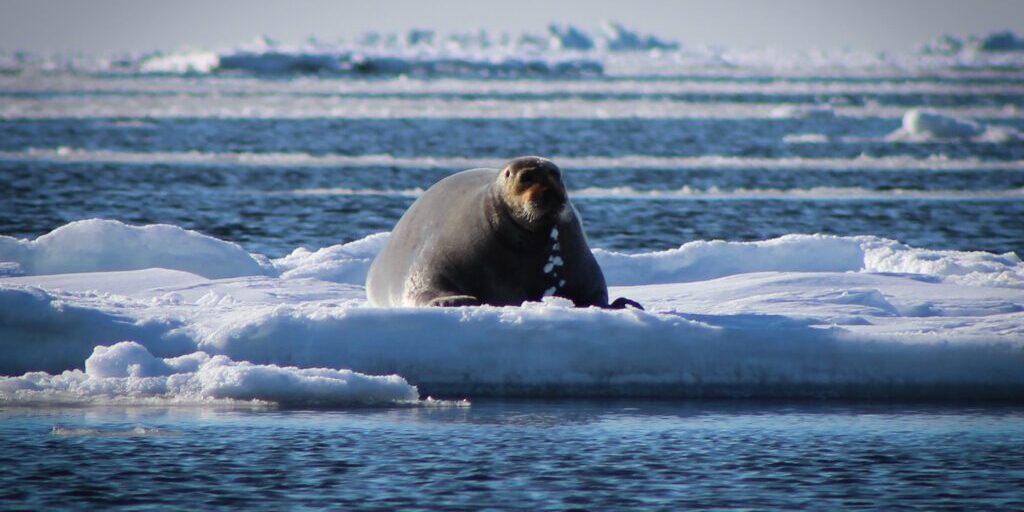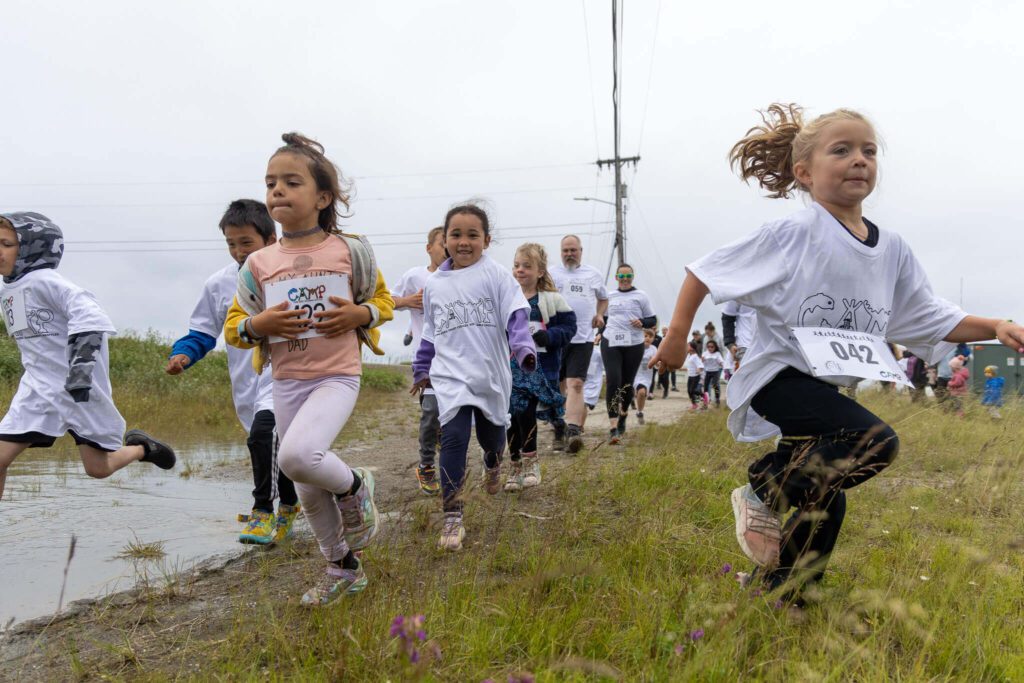The Arctic Ocean is getting spicier. A new study published in the Journal of Physical Oceanography suggests that rising temperatures in the far north could result in spicier water, or warmer water whose density is more affected by temperature than salinity.
This could make marine mammal hunting off Alaska’s coast more dangerous.
Mary-Louise Timmermans is a professor and oceanographer at Yale University. She studies how ocean circulation affects sea ice in the Arctic.
“For it to get ‘spicier’ means it’s going to get warmer, and changes in temperature will affect density to the same measure that changes in salinity affect density,” Timmermans explained.
The deeper you go in the ocean, the colder it gets. That’s because cold water is more dense than warm water, so naturally it sinks to the ocean floor. But the dynamics are different in the Arctic.
“At low temperatures, the water doesn’t really care whether it’s warm or cold,” Timmermans said.
Seawater in the Arctic Ocean is so cold that temperature isn’t the deciding factor in its density. Instead, Timmermans said, salinity, or how salty the water is, makes more of a difference.
But that’s about to change as the climate changes.
“As you warm up the ocean, it turns out temperature changes can have a bigger impact on density than in a cooler ocean,” explained Timmermans.
Timmermans teamed up with Steven Jayne of the Woods Hole Oceanographic Institution. The two found that a spicier Arctic will likely be able to store more heat.
“This means that the way that the Arctic Ocean works will be somewhat different,” Timmermans said.
It’s tough to predict just how different the Arctic will be, but she said warmer seawater may speed up sea ice melt. That’s bad news for marine mammal hunters like Brandon Ahmasuk.
“The sea ice, it offers a protective barrier,” Ahmasuk explained. “It keeps the ripples and waves down, it keeps them from forming.”
Ahmasuk is Kawerak’s Subsistence Director based in Nome. He grew up out on the water hunting with his dad. He now takes his own kids with him to hunt for bearded seal, or ugruk, and walrus.
“When you have that larger open water, it’s more susceptible to large waves [and] bad weather,” Ahmasuk added.
He says if warmer, saltier seawater makes for thinner, sparser sea ice, most hunters won’t fare too well in their standard, 18-foot Lund boats.
“Your side height on a Lund boat is only 28 inches, but if you have four- or six-foot rollers coming at you, you’re probably not going to want to be out there.”
But some villages, especially the ones without grocery stores to rely on, might not have any other choice. Despite the potentially more dangerous conditions, to hunters like Ahmasuk, a spicier ocean is still the best grocery store around.







